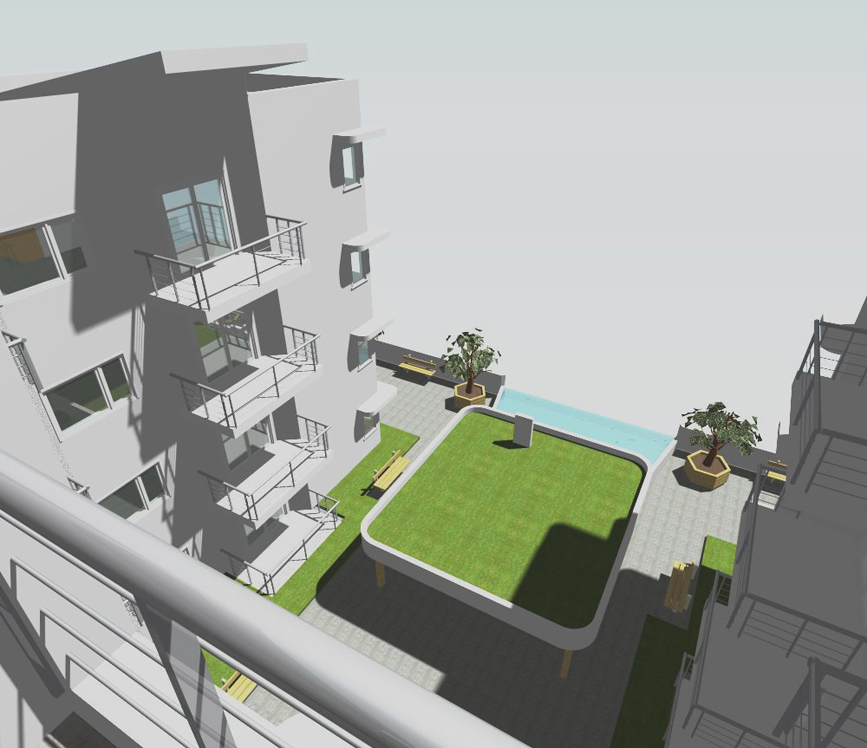
EVENS
CONDOMINIUM, 2008
Burien, Washington
Mark R. Blubaugh, architect
The City of Burien, Washington, traditionally a bedroom community of Seattle, is in the process of transforming itself. The City’s master plan calls for a major increase in density at the central business district, including housing and amenities. Evens Condominium transforms a site of two single family residences into homes for 28 families. The design incorporates distinctive architecture to distinguish itself from a large competing condominium development a couple blocks away. A courtyard plaza opens to the south for full access to sun. There is a barbecue/picnic structure in the plaza with built-in barbecue. A water wall flows off the back edge of the plaza, down the back wall of the parking garage, leading to a fenced back yard with vegetable pea patch.
Major Considerations: Most of the street frontage has parking garage and
spaces housing building services adjacent to it. This can have a detrimental
effect on the building’s connection to the street. The design uses
view-obscuring glass block to provide the illusion of habitable spaces
along the street frontage. Proposed green design features include an extensive
green roof over most of the high roof and parts of the plaza level. The
green roof reduces the urban heat island effect in the area, keeps the
top floor units cooler, provides storm water detention, and provides additional
sound insulation for the top floor units from aircraft noise caused by
nearby SeaTac airport. An over-size storm water detention vault below
the parking garage will provide stored rain water for the limited irrigation
needed by the drought-resistant green roof during the summer dry period.
Sun shading on south-facing windows provides full sun in mid-winter and
full shading, reducing solar heat gain, in mid-summer. Most importantly,
by housing 28 families on ground formerly occupied by two families, the
design provides a much better use of the land, and each household uses
less energy for heating because most of the perimeter surfaces of each
apartment abut another apartment.
